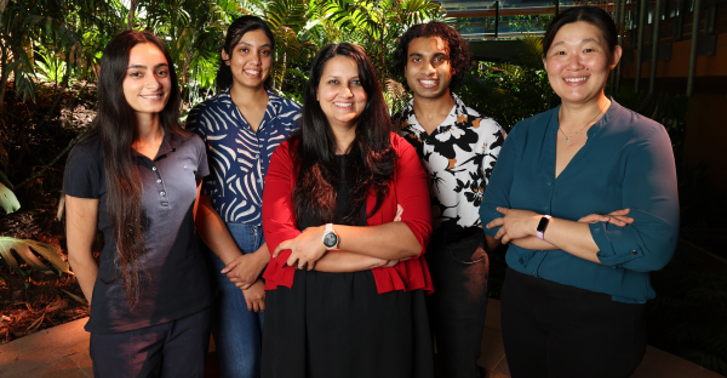
A groundbreaking study by Mater Research is poised to transform the future of Type 1 diabetes (T1D) treatment, offering renewed hope to millions worldwide.
The research focuses on a novel molecule designed to protect insulin-producing beta cells by shielding them from the immune system — the root cause of T1D. By safeguarding these cells, the study opens the door to halting the progression of the disease.
Led by Associate Professor Sumaira Hasnain of Mater Research and The University of Queensland, the project has been awarded a grant of nearly $200,000 from Breakthrough T1D (formerly JDRF) to investigate the vulnerability of insulin-producing beta cells - an area often overlooked in current therapies.
T1D is an autoimmune condition in which the immune system mistakenly destroys beta cells in the pancreas, resulting in a lack of insulin production. In Australia alone, an estimated 13,200 children and young adults are living with T1D, highlighting the urgent need for innovative therapies. While current therapies focus on managing symptoms and suppressing immune responses, they do not address the root cause – the inherent vulnerability of the beta cells themselves.
The research team has previously discovered that the molecule IL-22 can act like a “cloaking device”, effectively turning off the immune system’s attack alarms on beta cells in the pancreas. The findings suggest that IL-22 acts as a protective shield for beta cells, reducing the stress on beta cells, restoring insulin production and helping to stabilise blood sugar levels.
“This discovery has the potential to fundamentally transform the treatment of T1D and related metabolic diseases characterised by elevated blood sugar levels,” said A/Prof Hasnain.
In proof-of-concept work, blocking IL-22 in preclinical models led to increased stress, decreased insulin production, and heightened immune activity in the pancreas. The team has now designed IL-22-based therapies targeted specifically to the pancreas to protect the beta cells from immune attack.
A/Prof Hasnain said that the funding from Breakthrough T1D will enable the research team to test whether our therapy can boost beta cell resilience.
“By advancing this research, we hope to develop strategies that strengthen the health of insulin-producing beta cells, leading to improved outcomes for people living with T1D,” A/Prof Hasnain said.
“Ultimately, this approach also holds the potential to prevent the onset of T1D, particularly in individuals with a family history of the disease.”



